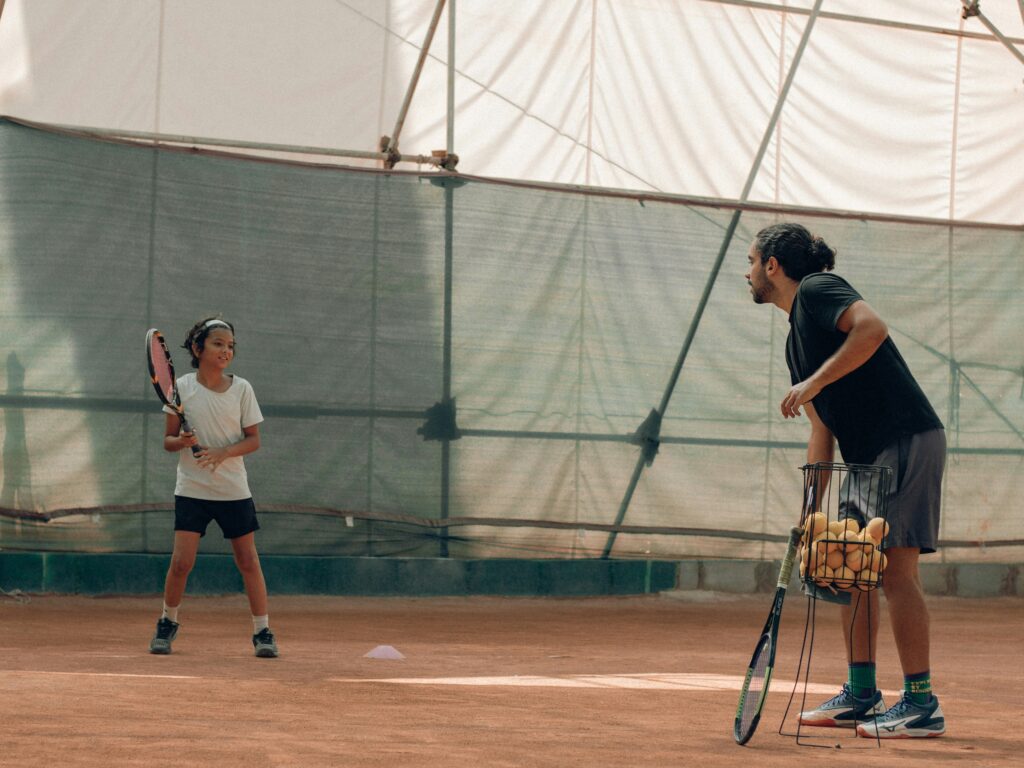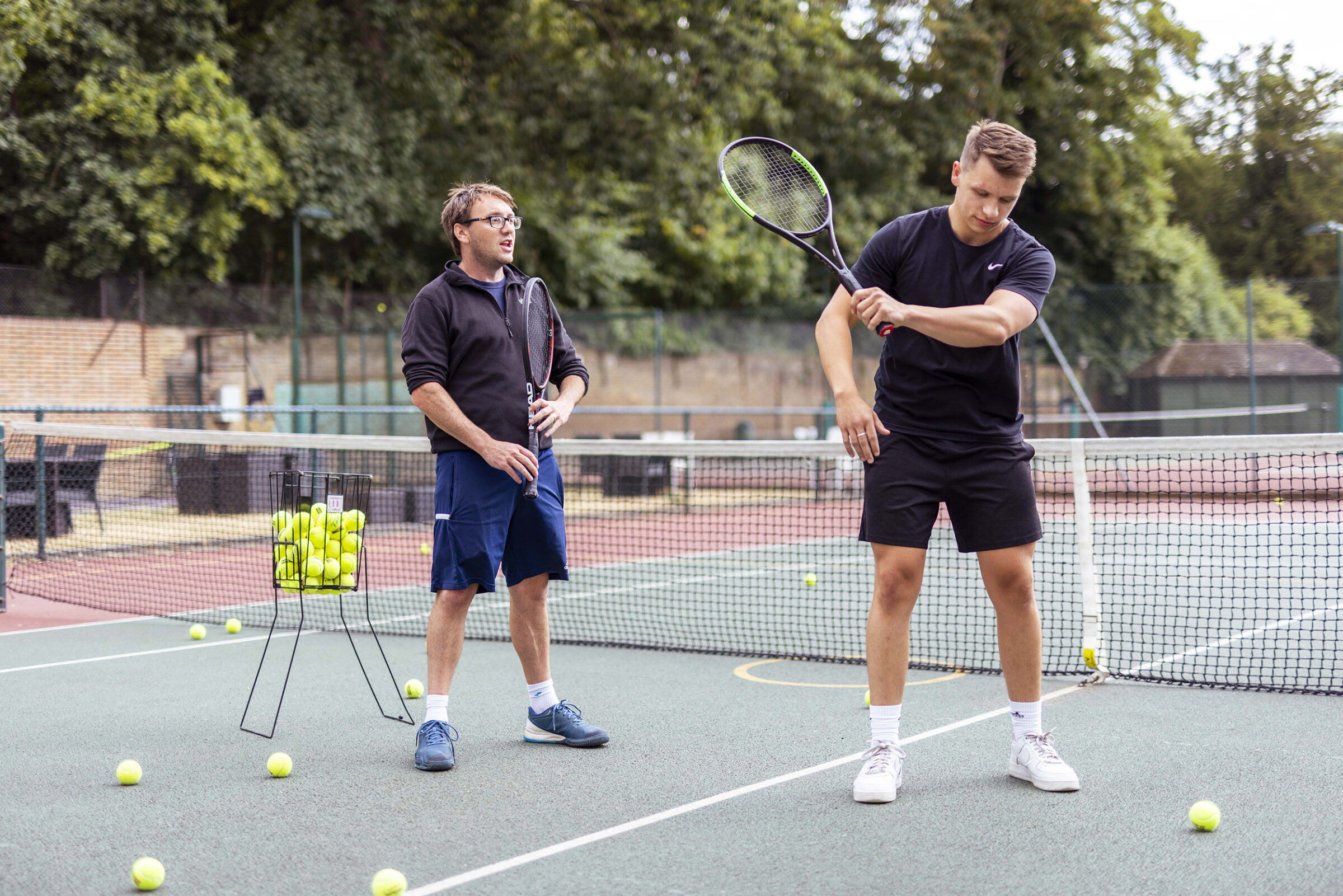Selecting the right tennis coach is a pivotal decision in one’s journey to enhance their skills on the court. To begin, it’s essential to assess your individual goals, whether they involve mastering the basics as a beginner or refining specific skills as an intermediate player.
Checking the coach’s qualifications and certifications is crucial, ensuring they possess the necessary expertise and experience. Seeking recommendations from peers, friends, or local tennis clubs can provide valuable insights based on personal experiences. Observing a lesson conducted by the coach allows you to gauge their teaching style and communication skills, helping you determine if it aligns with your learning preferences.
Effective communication is key, so ensure the coach can convey instructions clearly and provide constructive feedback. Consider practical aspects like the coach’s availability and schedule, aiming for consistency in training. A trial session often offered by coaches allows you to experience their coaching firsthand. Additionally, gathering feedback from current or former students offers a real-world perspective on the coach’s strengths and effectiveness. Finally, trust your instincts in making the decision, choosing a coach with whom you feel comfortable and confident in achieving your tennis goals.
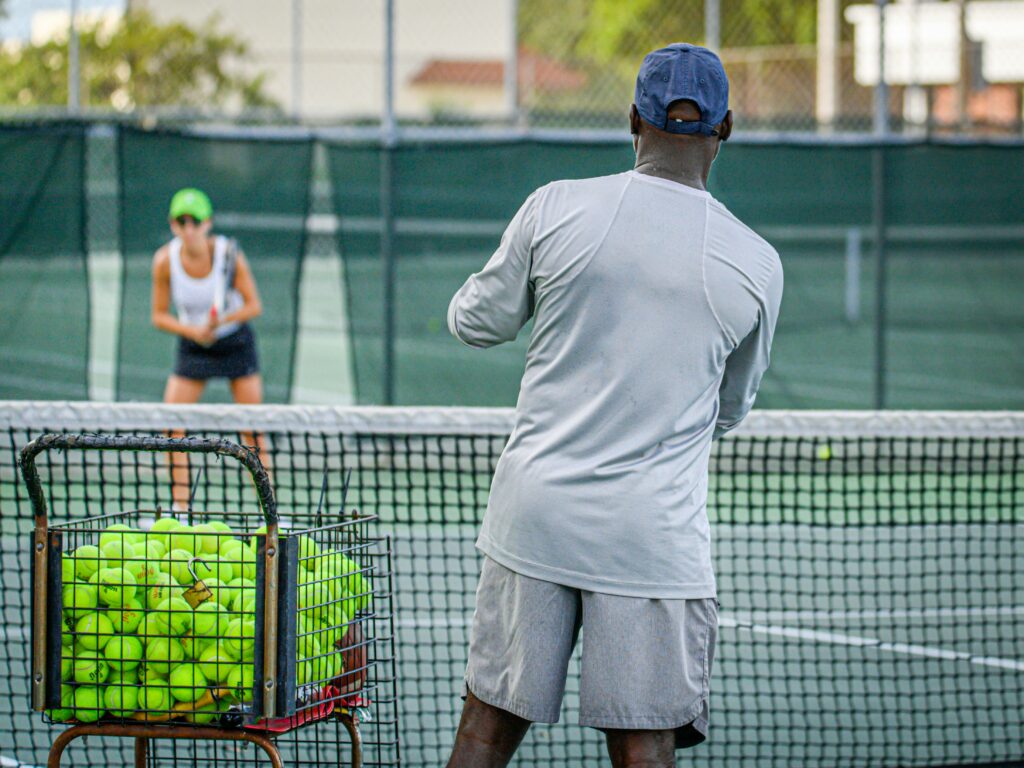
Despite the wealth of tennis coaching opportunities, there are unfortunately instances where coaches fall short of expectations. Here are some indicators that your coach may not be delivering the quality you deserve:
1. Generic Phrases
The coach frequently resorts to employing generic expressions such as “maintain focus on the ball” and “ensure proper knee bend” during instructions, displaying a persistent reliance on these clichéd phrases. This repetitive use of language not only contributes to a sense of monotony but also presents a potential hindrance to diversified and nuanced guidance. The consequence of such a pattern is a limitation in the breadth and depth of improvement that players can achieve, as the coaching approach lacks the necessary adaptability to address the varied needs and challenges each player may encounter on the tennis court.
2. Lack of Communication

Effective communication serves as the cornerstone in the coach-player dynamic, playing a pivotal role in fostering a collaborative and insightful learning environment. When a coach falls short in conveying instructions with clarity or fails to elucidate the rationale behind specific directives, the repercussions extend beyond mere confusion.
This deficiency in communication can significantly impede your overall comprehension of the game, leaving you grappling with uncertainties and hindering the development of a robust understanding of tennis strategies and techniques. Establishing an open and transparent channel of communication is imperative for ensuring that players not only receive clear guidance but also comprehend the underlying principles that contribute to their growth and proficiency on the court.
3. Clear Laziness
A lackadaisical approach to coaching can manifest in various ways, and unfortunately, some tennis coaches fall into patterns of lethargy that hinder their effectiveness. Picture a scenario where a tennis coach consistently remains seated during practice sessions, disengaged and offering minimal hands-on guidance. This passive coaching style can leave players without the dynamic feedback and motivation necessary for improvement.
As discussed a few points back, a lazy coach may resort to using generic phrases repetitively, such as “keep your eyes on the ball” and “bend your knees,” without delving into the specific aspects of each player’s technique. This lack of personalised attention can stunt individual progress and limit the overall development of the player. In such cases, the coach’s indifference to staying updated on the latest tennis strategies and equipment further underscores a lack of commitment to the players’ success, hindering their potential for growth on the court.
4. Tanking
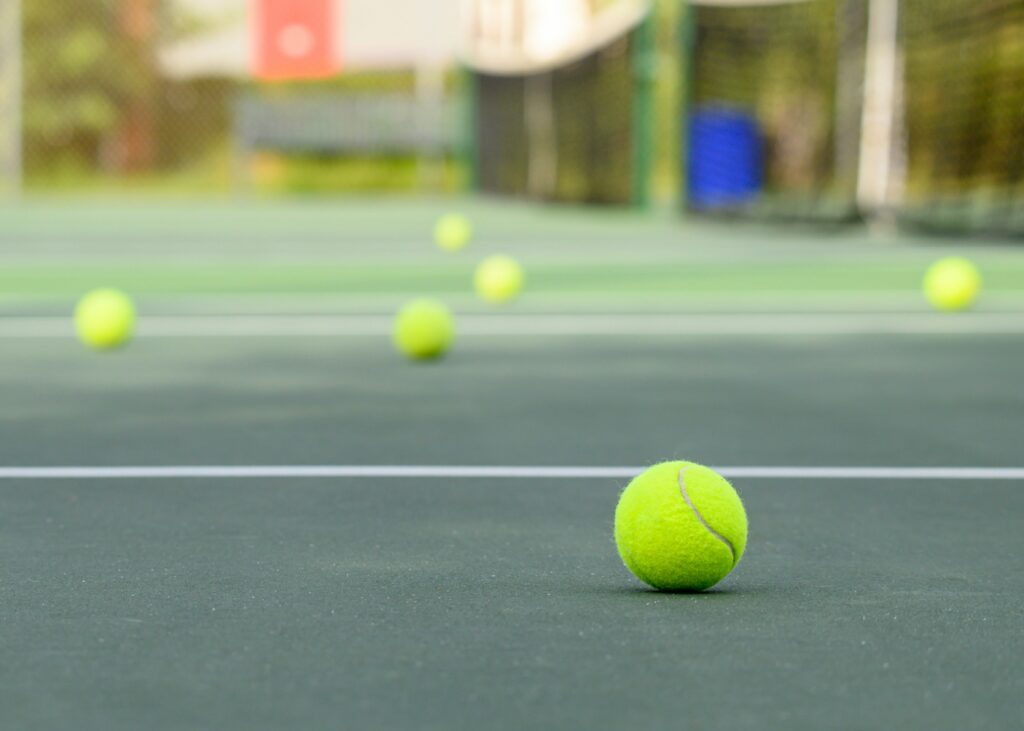
Some tennis coaches often take an extended amount of time to retrieve tennis balls during the lessons, and there are instances when they don’t even bother picking them up. This prolonged delay in ball collection disrupts the flow of the lesson and can lead to downtime, affecting the overall efficiency and effectiveness of the practice session. The lack of prompt ball retrieval may also create frustration among players and detract from the focus on skill development and gameplay. This is what many coaches use to waste and pass time, otherwise known as ‘tanking’. Poor value for money.
4. They Regularly Cancel sessions and/or Show up Late
Poorly committed tennis coaches who frequently cancel sessions and arrive late for their lessons can significantly undermine the learning experience for their players. Constant cancellations due to dubious reasons not only disrupt the players’ training schedules but also demonstrate a lack of professionalism and dedication on the part of the coach. When coaches consistently show up late, it sends a disheartening message to their students, fostering an atmosphere of disrespect and neglect.
The students may find their motivation waning, as the coach’s unreliability hampers their ability to make consistent progress. In such situations, the overall quality of coaching suffers, leaving players with a sense of frustration and a diminished desire to excel in the sport. A committed and punctual coach is essential for maintaining a positive and productive learning environment, fostering a genuine passion for tennis in their students.
5. Lack of Professionalism
Engaging with a tennis coach who presents themselves unprofessionally in both appearance and conduct can significantly hinder the learning experience and overall enjoyment of the sport. A coach’s attire, demeanour, and behaviour are crucial elements that contribute to a positive and effective coaching environment. A coach who dresses sloppily or neglects a professional appearance may inadvertently convey a lack of commitment and seriousness, undermining the importance of the training sessions. Moreover, unprofessional behaviour, such as a lack of punctuality, disorganised lesson plans, or a dismissive attitude towards students, can erode trust and motivation.
A coach’s professionalism extends beyond their appearance to their coaching approach. An unprofessional coach may lack the necessary communication skills to effectively convey instructions, provide constructive feedback, and motivate their students. This can lead to confusion, frustration, and a diminished desire to improve. Additionally, coaches who fail to maintain a respectful and encouraging attitude may create a negative learning environment, hindering the development of a healthy coach-player relationship.
In the realm of tennis, where discipline, focus, and commitment are paramount, an unprofessional coach can impede a player’s progress and dampen their enthusiasm for the sport. Choosing a coach who not only possesses the technical expertise but also exemplifies professionalism in appearance, conduct, and coaching methods is essential for a positive and successful tennis learning experience.
6. Finishing the Session Early

An ineffective tennis coach who consistently concludes lessons prematurely can significantly impede the learning process and dampen the enthusiasm of players. Ending sessions early not only shortchanges the players in terms of practice time but also reflects a lack of commitment to their development. This practice may leave players feeling unfulfilled and frustrated, as they miss out on valuable opportunities to refine their skills and receive adequate guidance.
7. You’re being overcharged
Unscrupulous tennis coaches who engage in overcharging practices not only compromise the integrity of their profession but also exploit the trust of their clients. Charging exorbitant fees without delivering commensurate value not only places a financial burden on players but also reflects a disregard for the genuine passion and commitment that individuals bring to the sport.

In contrast to these exploitative practices, average rates for tennis coaching vary across the world. For example, in the United States, average hourly rates range from $50 to $90 for private lessons, while group lessons cost around $20 to $40 per hour per participant. In Europe, rates may be slightly lower, with average hourly fees ranging from €30 to €70. Asia, being diverse, may see rates ranging from $30 to $70 in countries like India and China. The average price for a tennis lesson in the UK is between £50-60.
It’s crucial for aspiring tennis players to be aware of these average rates to make informed decisions and avoid falling victim to coaches who exploit their passion for the sport by unjustifiably inflating coaching fees.
8. Neglecting Mental and Strategic Aspects
In the intricate world of tennis, proficiency extends beyond mere physical skills, delving into the realm of mental fortitude. The mental aspect of the game is as crucial as the physical, contributing significantly to a player’s overall success. A coach who fails to address the psychological intricacies of tennis may inadvertently leave their players unprepared for the rigors of competitive situations.
Mental toughness, strategic decision-making, and emotional resilience are integral components of tennis mastery, shaping a player’s ability to navigate high-pressure moments on the court. Therefore, a coach’s oversight of these psychological dimensions can create a significant gap in a player’s preparation, potentially compromising their performance and hindering their growth within the sport. Recognising and nurturing mental resilience is paramount for any coach aspiring to develop well-rounded and competitive tennis players.
9. Everyone says your coach is S**t
Encountering a subpar tennis coach can be a disheartening experience, and gaining insights from others who have crossed paths with such coaches can be enlightening. A bad tennis coach often reveals their shortcomings through a series of observable patterns. Stories shared by individuals who have firsthand experience with a particular coach can shed light on various aspects of their coaching style and demeanour.
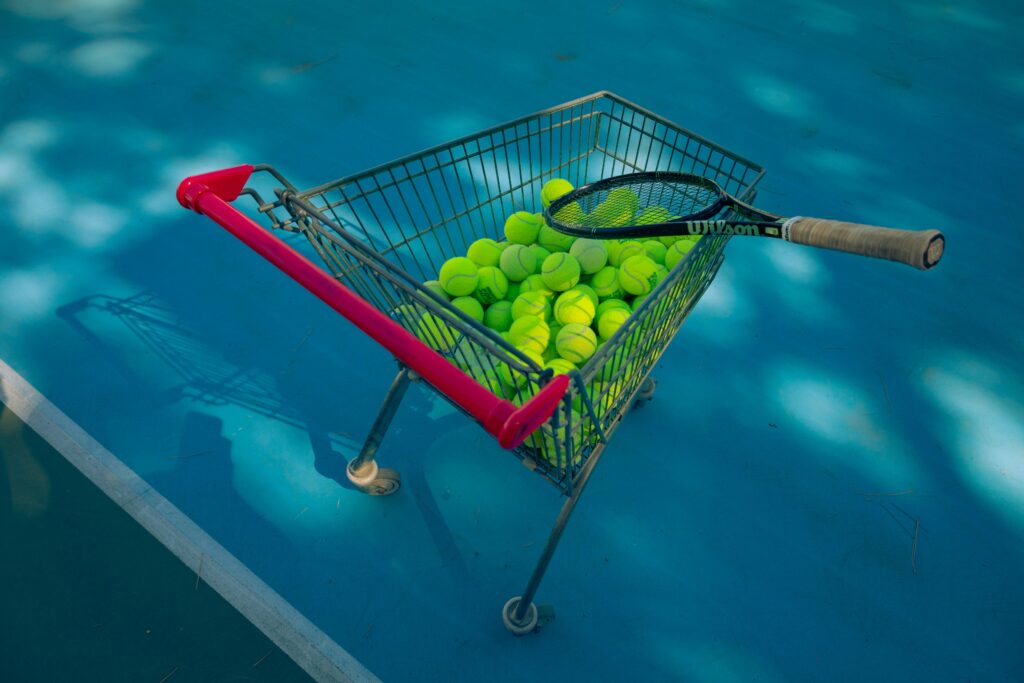
Perhaps tales of consistently cancelled sessions, lackluster commitment, or insufficient communication may emerge. These shared experiences serve as valuable cautionary tales for those navigating the world of tennis coaching, offering a collective pool of knowledge that enables others to make informed decisions. By actively listening to and considering the experiences of fellow players, one can better navigate the tennis coaching landscape, steering clear of less-than-ideal coaches and ensuring a more fruitful and enjoyable learning journey on the court.
Summary
Having your tennis coach’s full and undivided attention is paramount for fostering a productive and enriching learning experience on the court. A coach who is fully engaged can closely observe your techniques, identify areas for improvement, and provide timely feedback. This focused attention ensures that the coaching is tailored to your specific needs and learning style, optimising the efficiency of your practice sessions. Furthermore, undivided attention allows for open communication, enabling you to ask questions, seek clarification, and gain deeper insights into the intricacies of the game.
